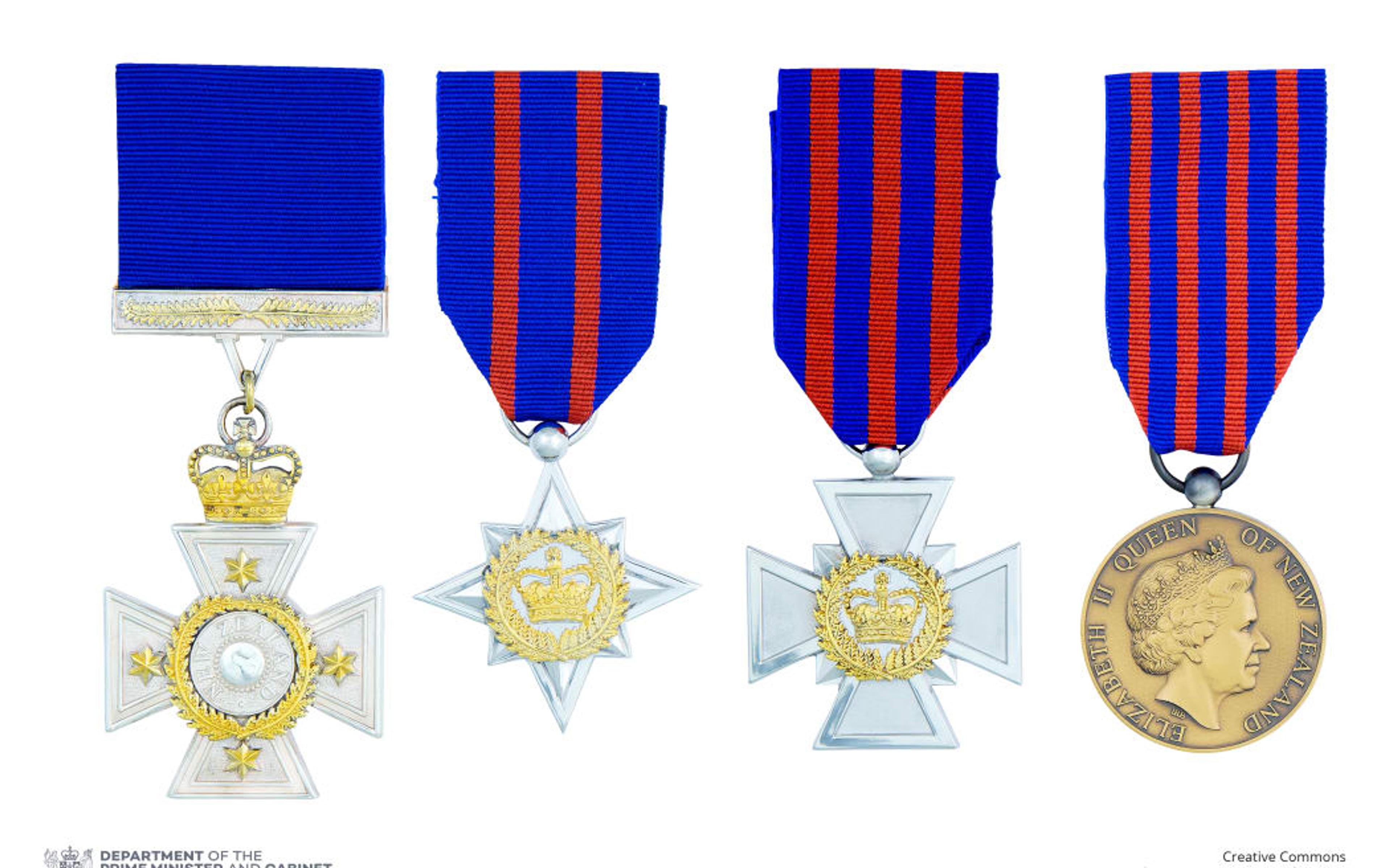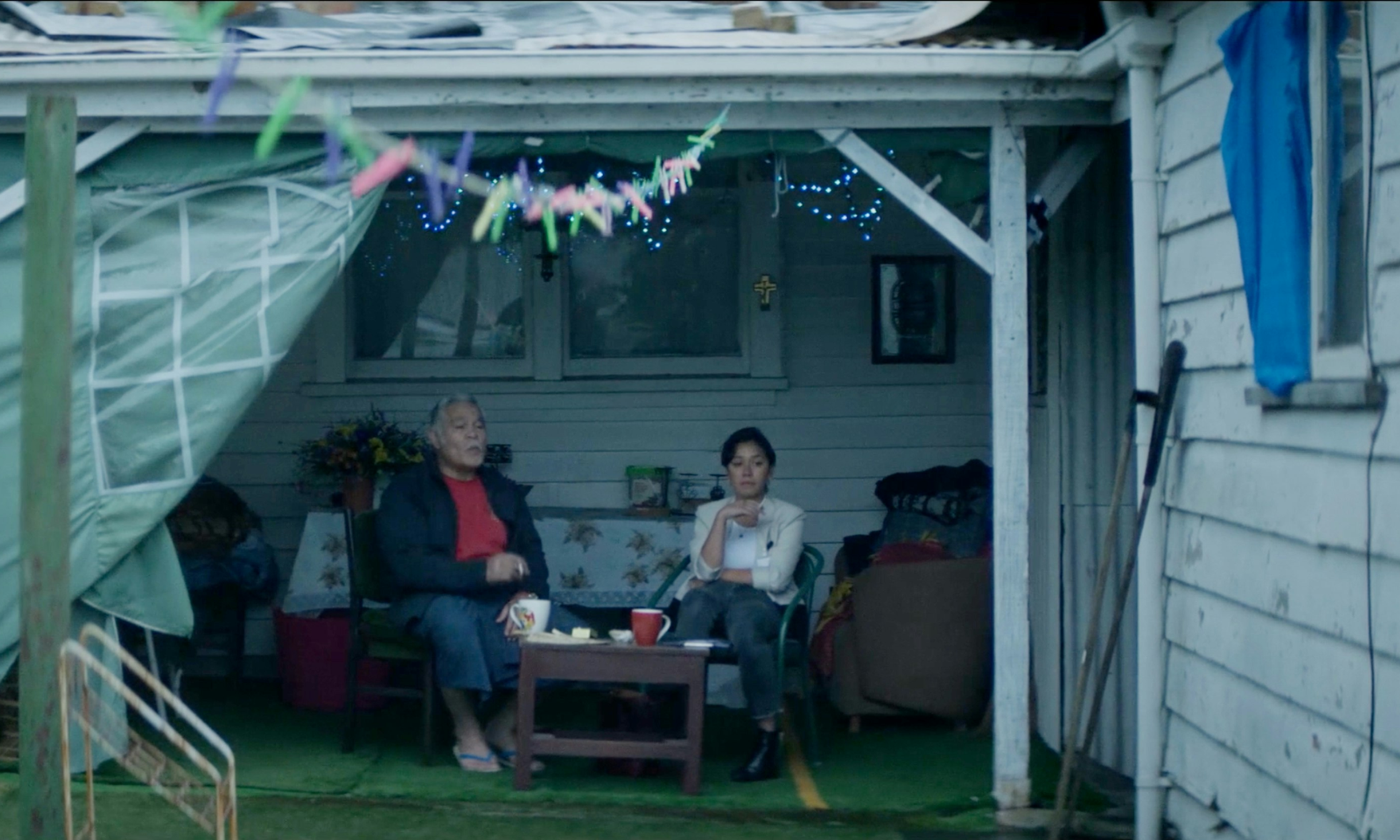

From left; Dr Sean Mallon, Toeolesulusulu Damon Salesa and Dr Lisa Uperesa.
Photo/ Supplied
Legendary Pacific writers to unpack the 'deep responsibility' and 'opportunity' non-fiction poses
A panel of esteemed authors, including the recent Ockham Award winner Damon Salesa, will be breaking down the importance of non-fiction to Pacific communities this Friday.



Unwanted sexual experiences ‘a public health crisis’ for Pacific youth, researcher says


Oscar hopeful Lea Tupu’anga's māfana captures global support



Unwanted sexual experiences ‘a public health crisis’ for Pacific youth, researcher says


Oscar hopeful Lea Tupu’anga's māfana captures global support
Pacific stories have long been known for the symbolic and supernatural, and to many it is a form of writing that is seemingly a great fit.
However Toeolesulusulu Damon Salesa, who just won the General Non-Fiction category at the 2024 Ockham New Zealand Book Awards, points out that non-fiction was the forerunner, arriving with the Christian tradition as typified in the Bible.
And to further unpack the importance of this genre of literature, he will be chairing a discussion on the tradition, future and nature of Pacific non-fiction writing on Friday May 17 as part of the Auckland Writers' Festival. He will be joined by prize-winning author and editor, Dr Sean Mallon (Iva and Mulivai, Safata, Belfast) Tatau: A History of Sāmoan Tattooing (2017) and renowned academic and award-winning author Associate Professor, Dr Lisa Uperesa (Pago Pago, Fagatogo, Puapua, and Billings, Montana) Gridiron Capital: How American Football Became a Samoan Game (2022).
Professor Salesa himself is an award winning author and interdisciplinary scholar focused on Oceania, who's recent win at the Ockham book awards was for his work, An Indigenous Ocean: Pacific Essays.
Salesa was also named as the second curator of the 2024 Auckland Writers Festival.
But it was no easy feat attempting to reach out to some of the biggest names in Pacific non-fiction, to ask their thoughts about the future of the form amongst Pacific authors.
Salesa says it was strange that in the western tradition, non-fiction is defined by the fact that it is not fiction, whereas the form itself came ahead of fiction to the Pacific.
“Pacific storytelling traditions fit very well in this mode, as well as other modes of writing: for they are deeply and richly symbolic, metaphoric in nature, genealogical and spiritual, as well as explanatory.
“So for me, Pacific non-fiction can bridge the old and new at least as well, as we see in the often more celebrated and visible areas of fiction, poetry and music.”
Dr Mallon said it was an important genre that allowed future writers to feed into and tell their own stories.
He pointed to a range of mediums to source opportunities using non-fiction, to bring different forms and multiple viewpoints, such as spoken word, written chapters in books, hip hop lyrics and the valuing of those forms.
“It’s incredibly rich, we need more people writing and publishing, for me, the medium is a way to get some of the stories, and histories and experiences of our people to a bigger audience, feed into an archive.”
Dr Uperesa acknowledged there was a wide variety of storytelling employed by Pacific peoples.
“I was interested in the story because it captures an important part of social life that I didn’t see reflected in any of the (very few) historical treatments of American Sāmoa, where I grew up and where my father's side of the family is from.
“Sport is often seen as trivial but it is woven so thoroughly into everyday life today. The story about Sāmoan engagement in American football resonates with many families in the US, and it has impacted my own life in a significant way.
“The story is also not just about sport but about politics, migration, economy, gender, culture and - foundationally - hopes for the future.
“Having the opportunity to also tell a portion of my father’s (Tuufuli Uperesa) story in this book was special because his was an extraordinary life, from where he began to what he was able to achieve in and through sport, and the impact he had on others. And I’m grateful to have had the opportunity to represent our people and places in print.”
One area of non-fiction writing that will most certainly be discussed on the night, is the responsibility to community, to the ancestors; about sharing people’s stories and truths within the form of non-fiction.
“I think this is where being Pacific and writing Pacific non-fiction carries both a unique opportunity and a deep responsibility,” says Salesa.
“We at once recognise these as our own, and yet also as a cargo or weight we carry for others. Through our genealogies and our families we are connected to each other, and to our stories, but we recognize they are not ours. For me, as so much of my work is historical, I recognize the connection and responsibility to our ancestors; but also the urgent work we carry for our children and grandchildren.
“I think that this is not unlike the responsibility of our fiction and poetry authors; the truth of those works is a different truth, but as everyone who has lived through a novel or poem knows, there are deep truths to be found there.”
Salesa says both Mallon and Uperesa are such powerful, insightful and humane voices, deeply imbued in the Pacific experience, in teaching and communicating what is unique about us, while sharing stories that speak to the distinctive ways at which Pacific people are in the world. Clearly the audience are in for a great evening with such passionate, articulate and bold personalities.
The Pacific Non-Fiction Today panel discussion will be at 5.30pm at the Limelight Room, Aotea Centre on 17 May.
Click here for more information about this session and others at the Auckland Writers' Festival.